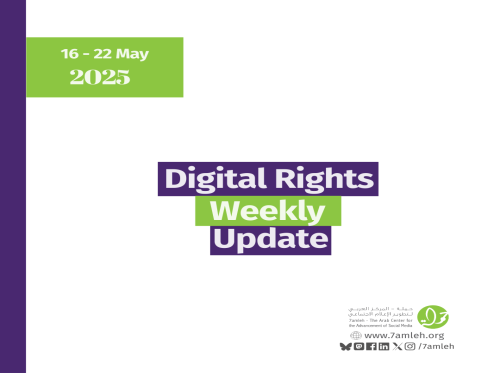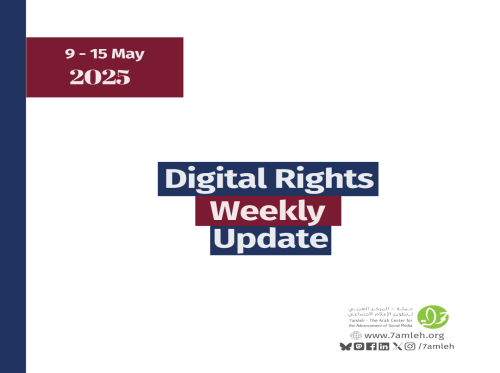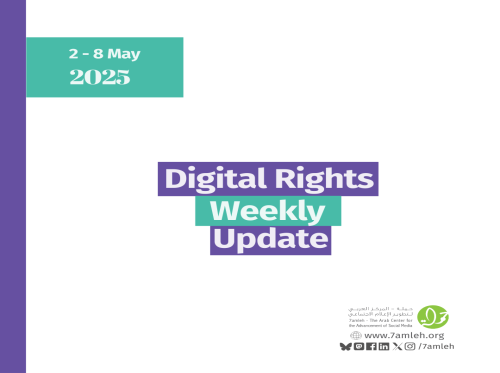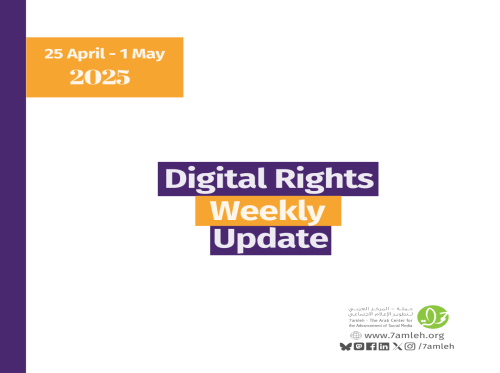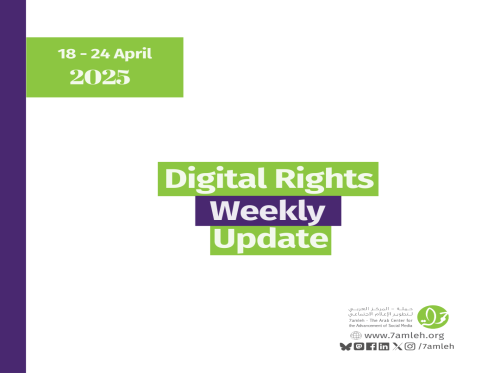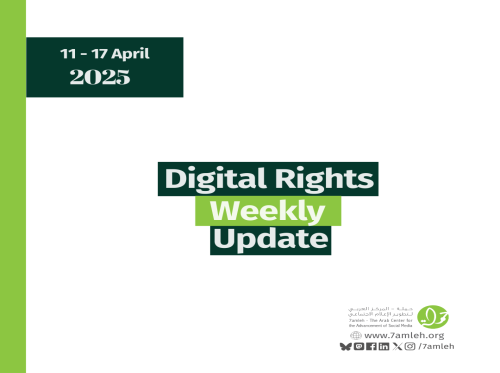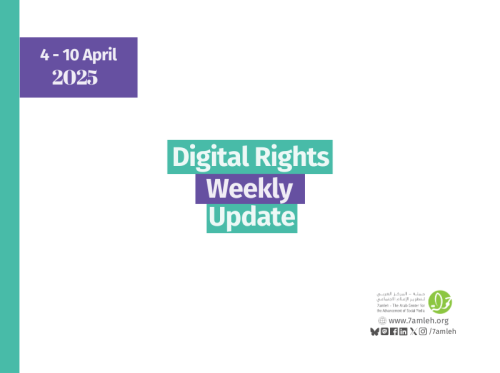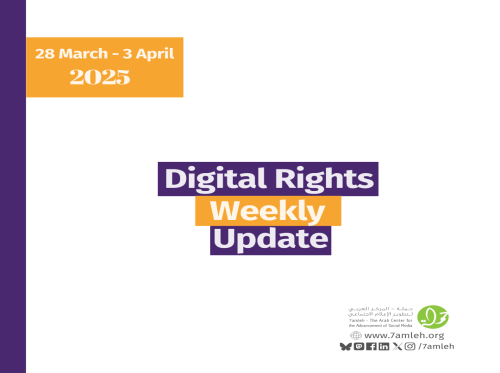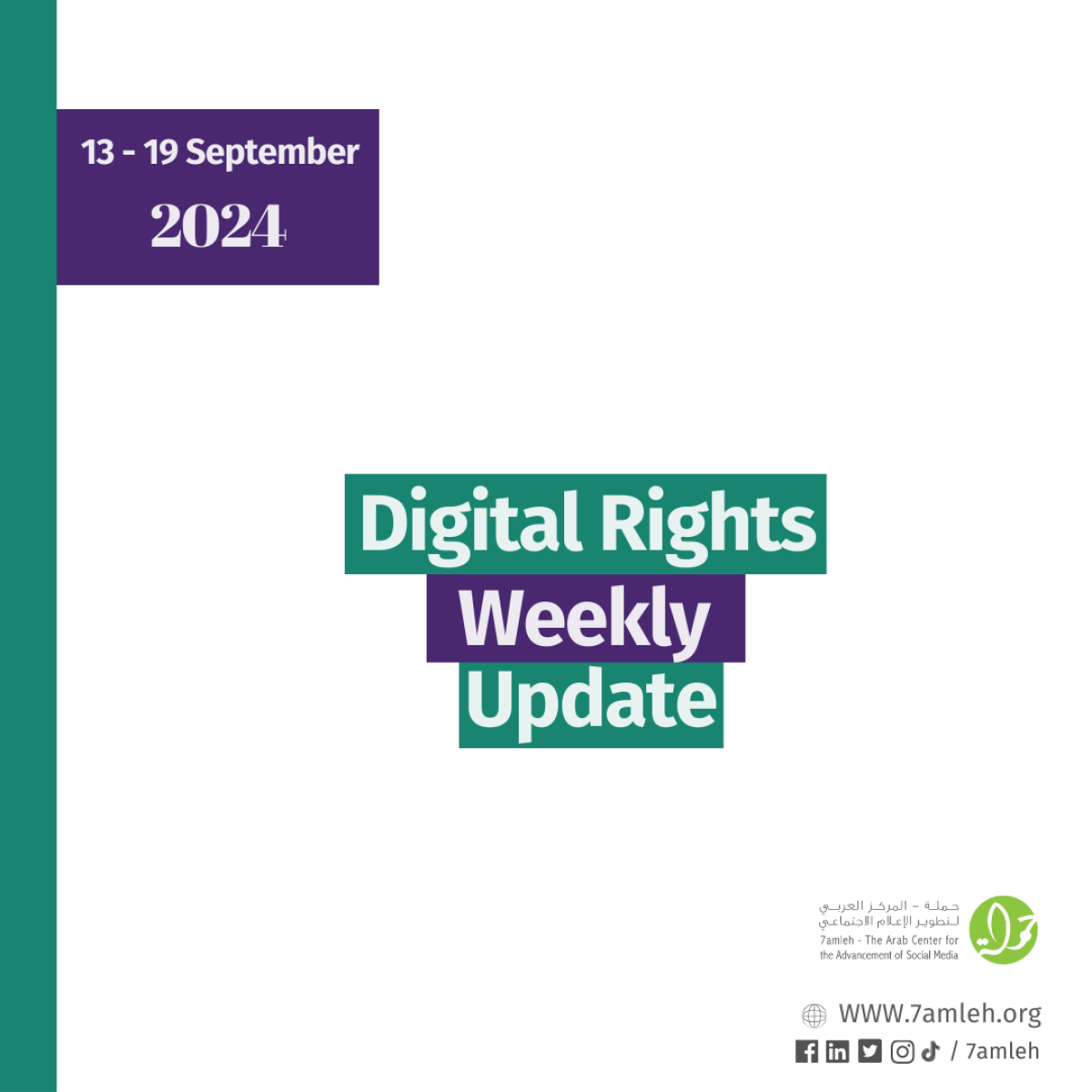
An excerpt from 7amleh
7amleh – The Arab Center for the Advancement of Social Media, after almost one year of the war on Gaza, published a new report titled "Palestinian Digital Rights, Genocide, and Big Tech Accountability." This report highlights the extensive use of technology in committing and exacerbating human rights violations, both by the Israeli government, which has utilized artificial intelligence to target Palestinians, and by tech companies, which have played a significant role in facilitating censorship, withholding information, and indirectly contributing to the efforts of the Israeli government in the context of the ongoing genocide in Gaza over the last year. The report compiles and analyses one year of Palestinian digital rights violation, and emphasizes the urgent need for immediate action to protect digital rights, and for developing accountability mechanisms for tech policies to prevent genocide.
Big Tech's digital hegemony over freedom and information
An excerpt from Daily Sabah
The technology giant, which openly stands by Israel in the atrocities taking place before the eyes of the world, seems to have offered all its resources to support the genocidal Israeli forces. The overt and covert censorship it applies to pro-Palestinian users is only the most visible part of the problem. Allegations that it shares its data power with the Israeli side for intelligence, targeting and attack purposes provide important clues about the dangers of their dataset.
Meta’s Oversight Board Rules ‘From the River to the Sea’ Isn’t Hate Speech
An excerpt from HRW
Earlier this month, Meta's Oversight Board found that three Facebook posts containing the phrase “From the River to the Sea” did not violate Meta’s content rules and should remain online. The majority of the Oversight Board members concluded that the phrase, widely used at protests to show solidarity with Palestinians, is not inherently a violation of Meta’s policies on Hate Speech, Violence and Incitement, or Dangerous Organizations and Individuals (DOI). In line with Human Rights Watch’s submission, it affirmed that while the phrase can have different meanings, it amounts to protected speech under international human rights law and should not, on its own, be a basis for removal, enforcement, or review of content under Meta's policies. Meta created the board as an external body to appeal moderation decisions and provide non-binding policy guidance.
Digital divide: Growing rift between big tech and governments
An excerpt from Anadolu Agency
Around the world, big tech companies are playing greater roles in people’s daily lives, with platforms such as Google, X, Facebook, and TikTok becoming indispensable for access to information and keeping in touch with family, friends, and colleagues across borders. For years, governments have been scrambling to keep up pace with the exponential growth of technology to ensure that innovation does not come at the cost of people’s privacy or welfare. However, as tighter regulations around access to data and competition materialize, tech companies have grown increasingly wary about how certain legislation could limit the growth of potential technologies, especially artificial intelligence. These concerns are at the core of the growing tug-of-war between big tech and governments on how internet platforms should be regulated.
Related Articles
Subscribe to Our Email Alerts
And stay updated with our latest activities, news, and publications!

